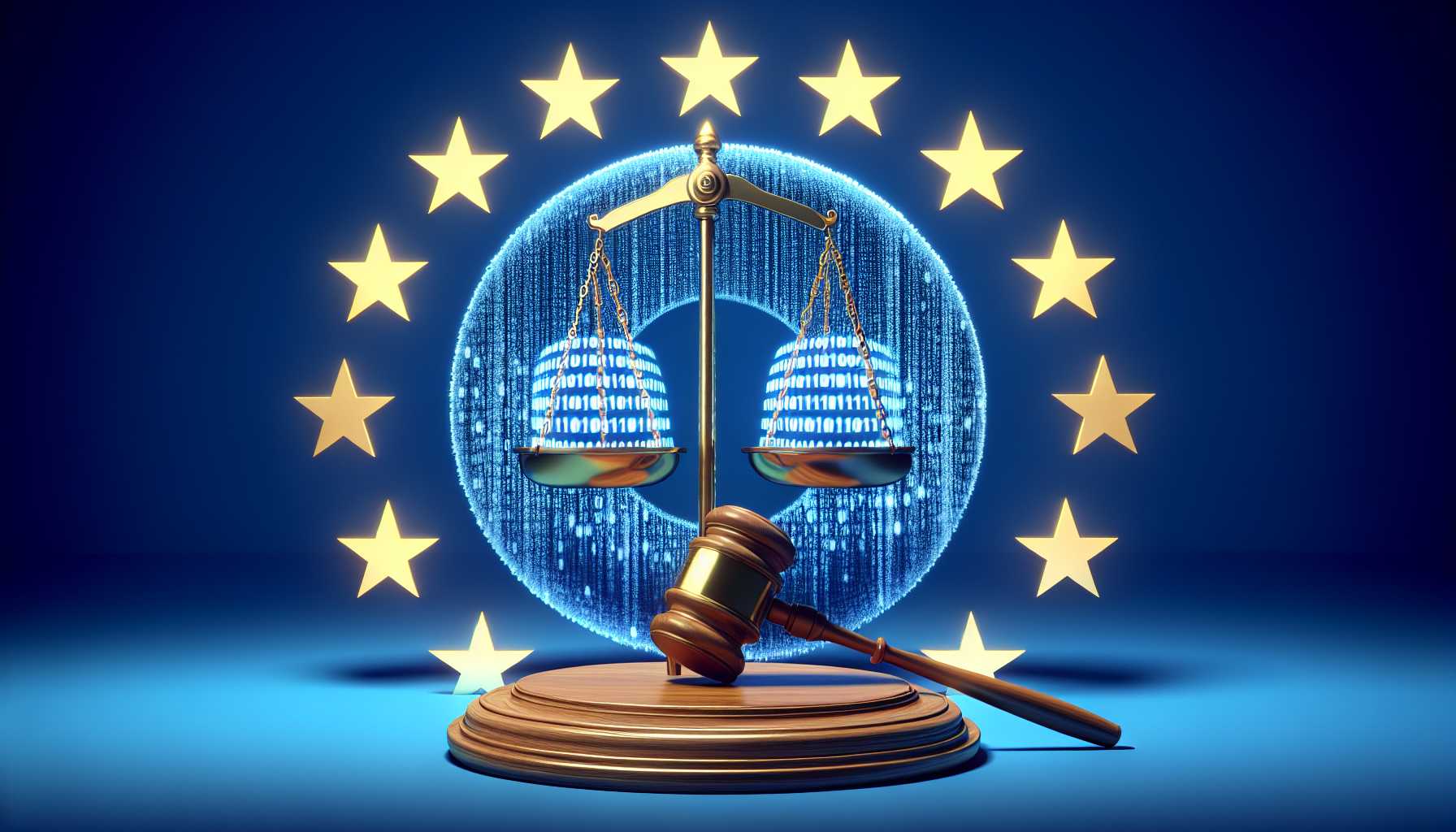The Digital Trapdoor: Unpacking the CFAA’s Cyber Snare
Ever felt like there’s a digital boogeyman lurking within the convoluted legalese of cyber laws? Well, friends and fellow tech enthusiasts, it’s time to shine a light on the cyber world’s legal trapdoor—the Computer Fraud and Abuse Act (CFAA). When journalist Tim Burke found himself cuffed with his toes dangling over said trapdoor, charged under the CFAA for accessing video clips with publicly posted demo login credentials, it raised eyebrows and hackles alike. The CFAA, with its nebulous definitions of “authorization” and “protected computers,” has long been a ready weapon for aggressive prosecutions. Think of it as a digital Pandora’s Box, with the potential to turn even simple terms of service violations into felonies. However, the Supreme Court’s decision in Van Buren v. United States has thankfully dialed down the ambiguity, saving us from turning password sharing for our Netflix binge-watch sessions into a potentially criminal affair.
Unchaining Creativity: How Initia Is Reshaping Blockchain Development
In the high-octane world of blockchain, developing decentralised applications (DApps) could often feel akin to deciphering an ancient spellbook—complex and fraught with peril. Enter Initia, the rising star in the blockchain cosmos, promising to unravel the convoluted chains binding developers’ imaginations. Aimed at fostering a multiverse of interoperable app chains, Initia is smoothing out the creases of fragmentation and user friction synonymous with blockchain applications. Imagine seamlessly using a single stablecoin or navigating various DApp features without switching wallets or explorers like you’re juggling browser tabs in a frenzied research session. For the tech builders among us, Initia’s Layer 1 blockchain and Layer 2 rollups are like offering a spell of simplification—potent enough to charm both the alchemists of code and the end-users seeking the next digital utopia.
Futuristic Fancies: MWC 2024’s Most Eyebrow-Raising Gadgets
Step right up, and behold the carnival of tomorrow unveiled at MWC 2024—truly the circus maximus of the tech world! Lenovo’s ThinkBook Transparent Display Laptop taunts the limits of transparency with its see-through screen wizardry. Meanwhile, the Humane Ai Pin whispers of a new witchcraft, replacing smartphones using voice commands and holographic hand projections—a glittering orb in your digital accessory collection. And for the piece de resistance, Motorola’s bendy phone could enchant your wrist one moment and host a digital duel in tent mode the next. These marvels represent not just pieces of technology but the alchemy of human ingenuity manifesting in forms Philip K. Dick would croon over.
The Tightrope of AI Ethics: Google’s Gemini AI Controversy
Alas, here we stand, at the tech world’s gladiatorial arena where AI’s ethical quandaries face off under the unforgiving spotlight. Google’s Gemini AI tiptoes this tightrope, tasked with the Herculean feat of delivering chatbot enlightenment. Yet, its tale twists with outputs that have left many aghast, prompting fierce torches and pitchforks from observers like VC titan Marc Andreessen. The saga underscores the delicate balance the company has to strike—delivering cutting-edge AI without offending or distressing an audience swept up in the cultural zeitgeist. It’s a narrative fraught with trials, reflecting the complex choreography between rapid innovation and the anchor of responsibility Google must master in this grand dance of technology.
Apple Under the Regulatory Microscope: The EU’s PWA Inquiry
Gather round, for the next chapter in the Apple saga unfolds within the hallowed halls of the European bureaucracy. The EU, armed with the Digital Markets Act (DMA), glares down from its tower of regulation, questioning Apple’s rationale of disabling access to Progressive Web Apps (PWAs) that sidestep its App Store. With the lure of significant fines for disobedience to the DMA, Apple shuffles upon the checkered board, maneuvering between compliance and competitive chess moves. As developers watch warily, Apple’s story in the EU sparkles with the drama of a high-stakes political thriller, resonating through the hushed auditoriums of tech power players worldwide.
The Ad Fraud Scourge: Guardio Labs Exposes ‘SubdoMailing’
The digital realm has its own hunter-gatherers, those who scout vulnerabilities, except they’re not seeking sustenance but exploitation. The ‘SubdoMailing’ scheme is one such hunter, wearing the camouflage of esteemed domains to reach its unsuspecting prey—us, the end-users. Guardio Labs has unearthed this nefarious campaign that twists the integrity of respected names to dispatch millions of artful deceptions via email. The ability of SubdoMailing to dance around spam filters, don the masks of authentication protocols, and sidestep digital sentries is a chilling reminder of the ever-evolving threats in our digital ecosystem.
The Great Divide: Apple Vision Pro’s Mysterious Crackgate
In an ironic twist, the Apple Vision Pro, a beacon of futuristic endeavors, finds itself shackled by an adversary as mundane as fragility. Enthusiasts and visionaries who embraced this harbinger from tomorrow now share tales of woe—of unexplained fissures marring their digital windows into new realms. The outcry has gathered a chorus, dubbed ‘Crackgate,’ as theories abound like folklore tales attempting to explain the mysterious ailment befalling these ambassadors of VR luxury. Amidst assurances, speculations, and grappling customer services, Apple Vision Pro’s patrons stand at the edge, pondering the cost of their leap into the innovative beyond.
Rebooting Representation: Google’s Gemini Image Generator Up for a Redux
And now, a tale of quandary: Google’s Gemini Image Generator embarked on an odyssey to portray the human mosaic, only to lose its path in a digital mirage. As debates stir over its skewed tapestries of history and ethnicities, the search titan halts its journey to recalibrate. Eager eyes from across the spectrum chart its return, hoping for a realm where pixelated renderings pay homage to the vastness and accuracy of our shared human saga. For even in a land ruled by algorithms and code, the story of diversity demands a faithful bard’s attention.








